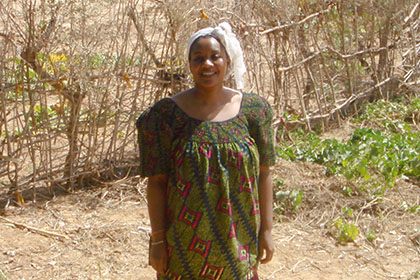 |
In Niger, West Africa, where I was born, the morning ritual for women and girls in rural villages begins before dawn by grabbing a container or bucket, and heading for the nearest water source. Bathing and laundry are done by the pond after the water supply quota has been met for the day.
This backbreaking job is what girls throughout Africa face as their destiny. It is the shackle that prevents them from being educated and empowered.
I was very fortunate to be born in the Niamey, the capital of Niger, and was thus spared much of the hard work suffered by my cousins living in rural villages. During summer breaks I visited my maternal grandmother in the region of Tera.
At a young age, I was struck by the dismal difference between the fate of my maternal cousins and that of my paternal ones. Access to clean water and education was the stark difference.
One family lived by the river Niger with a plentiful supply of safe water while my cousins had to walk about two miles to the nearest unsafe pond.
My female cousins were too busy helping my aunts with the daily chores, so they were denied a chance at an education and typically married as a pre-teen-11, 12 or 13 years of age. Isn't that hard to imagine?
Working with Wells Bring Hope as Director of Microfinance has given me the opportunity to directly help the women in my country by giving them the tools they need to help their families and impact their lives for generations to come.
When women no longer have to walk miles to get water, their time is freed up to work productively and earn money. Wherever we drill a well, we educate women to start their own small businesses. By providing microfinance education and later, microloans to women, as we do, we are offering long term, sustainable solutions.
Hadiara Diallo
Director of Microfinance


